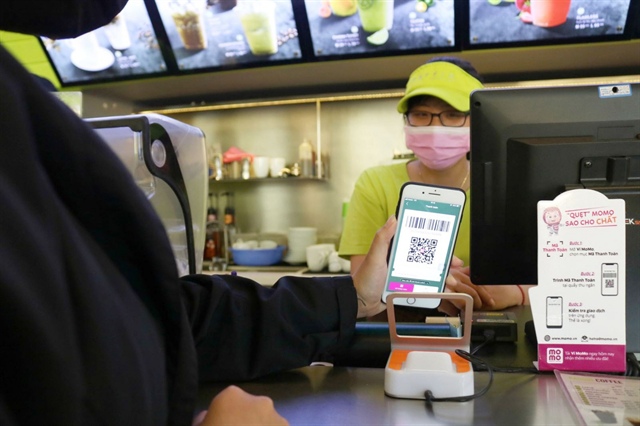Vietnam’s dong goes cashless as country experiences e-wallet boom
Vietnam’s dong goes cashless as country experiences e-wallet boom
The COVID-19 pandemic has significantly boosted e-wallet use in Vietnam, turning it from one of the most cash-reliant countries in Southeast Asia to one of the region’s fastest growing cashless payment markets.

Consumers prefer to use e-wallets to pay online bills and service fees |
Strong increase in users
According to a recent Digital Virgo survey, the year 2021 had a significant impact on digital consumption patterns. The pandemic provided a powerful incentive to create a globalized payment network, which quickly and directly affected the world of finance, including alternative payment methods. Online shopping has exploded and mobile phones have become a preferred payment option.
The survey also shows that e-wallets are expected to become the most popular in-store payment method, with the number of e-wallets in use expected to reach 4.8 billion by 2025 (up from 2.8 billion in 2020). In addition, a Yahoo Finance survey reveals that e-wallets will account for more than half of all e-commerce payments worldwide by 2024. In Vietnam, one of the fastest-growing e-wallet markets, they are rapidly replacing cash and cards.
E-wallet firms are promoting cooperation with other super apps. The strategy of partnering with a super app is seen as a useful way to expand customer base. Leading e-wallets, such as MoMo, ZaloPay and ShopeePay, are promoting restructuring and integrating many new services. According to Yahoo Finance, 82 percent of users have started using e-wallets integrated into e-commerce platforms, such as Shopee and Grab. For example, a ride-hailing company, Gojek, has partnered with MoMo e-wallet to allow users to pay for a trip by motorbike or car as well as for food and parcel delivery.
|
Nguyen Manh Tuong, deputy chairman and co-CEO of MoMo, said about 40 percent of users living outside Vietnam’s major cities also use e-wallets as a means of payment.
Integrating new technologies
Dr. Kiong Kok, lecturer in finance at RMIT University, said super-app development stems from the fact that e-commerce platforms and e-wallets are perfect substitutes for each other, allowing users to change their consumption behavior.
Dinh Hong Hanh, leader of Financial Services at PwC Vietnam, said the pandemic has spurred a boom in e-payments, offering opportunities for the entire digital payment ecosystem.
With the popularity of e-wallets and the rapid development of technologies, biometric authentication involving fingerprint scanning and face recognition will be integrated into e-wallets, increasing their safety and security. In addition, e-wallet payments by QR codes will increase, making transactions easier and error-free.
Additional technologies will also be integrated into e-wallets. Customers can already receive discounts or gift vouchers if they use e-wallets on multi-service apps to pay at physical locations.




























